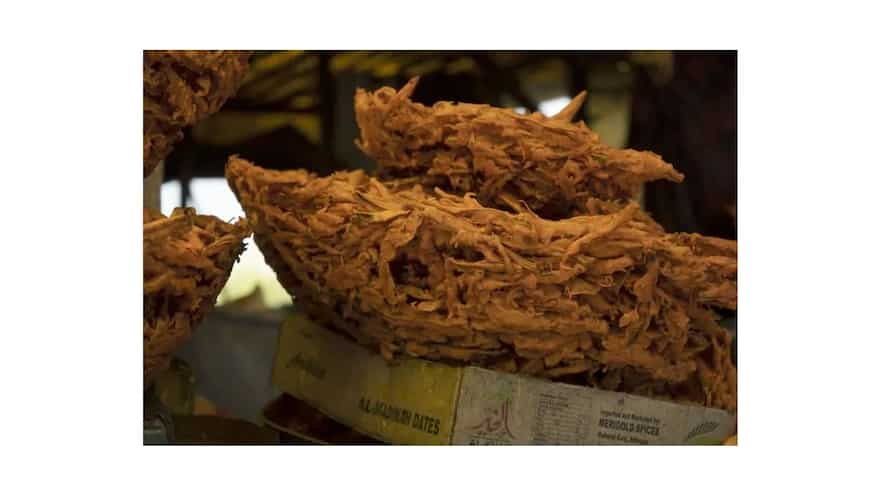This article is part of Slurrp's Friday Food Walks. Catch up with our previous tours, through Chennai's Sowcarpet and Kolkata's Simla Mishti Para.
IN Kashmir’s spiritual souk Dargah Hazratbal — a shimmering sanctum on the banks of Dal Lake in Srinagar — the traditional food peppered with aromatic spices and delicacies is a reflection of the region’s rich culinary repository. The street is a symbol of Kashmir’s foodie delights. So, when you embark on a trip along the Hazratbal food trail, you’re all set to experience a gastronomical adventure.
Alongside is Kashmir’s oldest university. This combination of food, spirituality and knowledge makes it one of the vibrant hangouts in Kashmir, especially on Fridays when the faithful flock to the bazaar for some mandatory spiritual solace and shopping.
Dargah is always full of hustle and bustle. The place has preserved the traditional old street food of Kashmir. Not only street food but you will also get to see old men and women in traditional attire selling other food items like homemade butter and ghee. Some of these spirited men and women come from the farthest corners of Kashmir only to set up their stalls in this revered market of the Valley. And given the massive influx of devotees, their slog rarely ends on a sour note.
Whether you’re in the mood for fish and chips, or locally sourced and organic picnic provisions, or barbecue experiences, the street has all the options. It is a food lover’s paradise. The presence of spice sellers and wicker basket outlets make the bazar even more captivating for onlookers. The signature mood and vibes of the place offer an uplifting experience for heritage tourists roaming the bazaar in pursuit of some adventure.







In the middle of this iconic market, an old man holds the traditional wicker basket called phout in Kashmiri. It is covered with a cloth and its steam releases an irresistible fragrance. Inside that wicker basket is Kashmir’s traditional delicacy: Masal Tchot. This is the Kashmiri version of a hummus wrap. Filled with boiled channa and radish chutney wrapped in bread, this delicacy is a street delight and a quick food for all. In fact, no fancy cafes and restaurants — by the way Kashmir has dozens of those theme-based eateries now — can satisfy your appetite as much as a lavasa. This is something that will not just end your hunger, but also satisfy your taste buds. It is pocket friendly too: One wrap costs barely Rs 20!
As you move through the market you will notice big stalls with huge burners alongside frying the famous poori and halwa combination. This poori is a bit different from the mainland Indian poori. It is almost triple the size and usually has a diameter of 3ft.
Freshly made poori with halwa is the sweetest treat on the street, especially on the religious anniversaries in Kashmir. The faithful take home this sweet as a token of faith from Dargah. A full halwa-roti will cost you only Rs 150 and you share it with two more people.








Moving deep into the alleys of this bazaar, you will find old women dressed in traditional attire selling fresh fish from the lake. If you start craving some seafood, then don’t worry, just look around: You will find a big frying pan filled with fish there already.
Monji Gaade is an instant fish snack you should try in this fabled bazaar of Kashmir. Fish is dipped in rice flour and besan, and deep fried before being served with radish chutney. This treat is typically sold for Rs 100.
Along the food market, you will find shops selling bags and papier mâché items. So if you are a shopaholic, the street offers not just food but many other experiences as well. As you move forward you will find the traditional laayeh — coloured puffs that dissolve in your mouth. This street delicacy is made from rice, sugar and a lot of food colour, and costs somewhere between Rs 20-50.
The next amazing snack that you should try is Nadir Monji. These are fried lotus stems dipped in rice flour and besan. The outer covering is crispy and as you start chewing, the inner lotus stem lends a neutral flavour. You simply won’t stop eating until you finish the whole thing! All this for Rs 50 only.
And as we move towards the shrine you will see pigeons being fed and a big white tomb perfectly syncing with the beauty of the lake. On the staircase sits a lady holding the traditional wicker basket filled with wheat and black lentils. This is known as Kaanak Masaal – a healthy meal, free of fat, cholesterol and oil. The preparation involves boiling the wheat and beans until tender, then mixing them with traditional spices, and serving the meal hot. This will cost you Rs 50-100.
At sundown when the faithful return home, the ambience of the bazaar turns smoky. This is when most of the barbeque sellers add a distinctive flavour to the bazar. With nightlife yet to come out of the confines in Kashmir, the bazaar buzz lasts till the final embers turn into ash and the last barbeque is savoured by food lovers.


